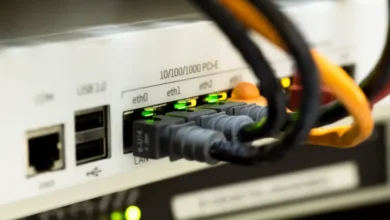Does Your Home Internet Connection Underperform? Try These Tips
Be it broadband router configuration error, WiFi obstruction, Netgear extender red light issue or any other technical problem, it puts an adverse effect on the speed and stability of your internet connection. Analyze and fix the reasons for your moderate internet connection on your own by going through this particular post.
Here is a rundown of possible fixes to perform when your home network underperforms.
1. Check the Settings of Your WiFi Router
As the main component of a WiFi network, a broadband router can be a reason for moderate internet connections if it is configured inappropriately. For instance, improperly setting the MTU size of a router results in performance issues if it’s set excessively high or excessively low. Be 100% sure that your router’s settings remain reliable with the producer’s documentation.
Quick Tip: Note down the changes you have made during the router’s configuration so you can undo them later if essential.
2. Avoid Signal Interference that Slows Down Your Internet Speed
WiFi and other kinds of WiFi connections frequently perform ineffectively on account of signal obstruction, which requires PCs to persistently resend messages to overcome signal overlap.
Household machines and your neighbors’ WiFi systems can meddle with your PCs. Change the position of your router for superior performance and change your WiFi channel number. As a rule, the closer your gadget is to the router, the better the WiFi connection. Also, keep your Netgear WiFi extender to a place where you get no interference. This kind of interference even leads you to Netgear_ext login issues.
Enormous, dense objects, for example, chimneys block WiFi signals more than walls. A gadget that is near a router; however, hindered by a barrier, may not successfully connect.
3. Be Careful With Worms and Other Malware
A web worm is a malicious program that spreads from gadget to gadget through PC systems. In the event that any of your PCs become tainted by a web worm or other malware, they may immediately produce system traffic without your knowledge, and make your internet connection slow down.
Keep the antivirus software running on your system updated, so that it can catch and remove worms and malware from your gadgets.
4. Stop Background Programs That Hog Bandwidth
Some software or applications run background processes, which are hidden behind other applications. A few are limited to the system tray, where they discreetly eat up network resources. In contrast to worms, these applications are intended to do valuable work and ought not to be removed from a gadget.
Games and applications that work with videos require huge transfer speed and utmost data transmission for other foreground applications. It’s easy to forget that these applications are running in the background. So check PCs for applications that are running in the background when you are dealing with a slow or sluggish network.
5. Ensure Your Router and Other Network Equipment Is Working
Whenever routers, modems, cables or extenders malfunction, they don’t appropriately support network traffic at full speeds. Certain technical errors in system hardware adversely influence performance, despite the fact that connections can even still be established. In the case of Netgear extenders, try accessing mywifext page to confirm that the issue is with your extender.
To fix possibly faulty hardware, temporarily adjust and reconfigure your gear while at the same time trying different configurations. Systematically attempt bypassing the router, changing cables, and testing with various gadgets to fix the moderate performance to a particular component of the system. At that point, choose whether it tends to be updated, fixed, or replaced.




